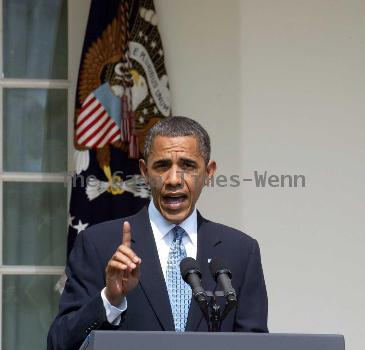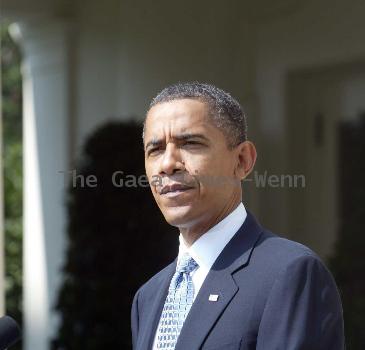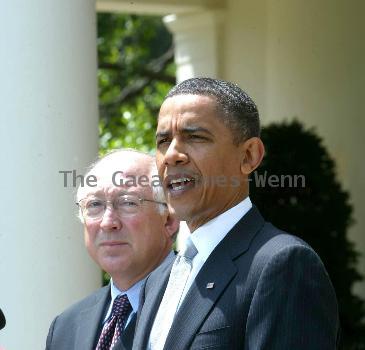Longtime NYC congresswoman faces strong bid by newcomer with competing Wall Street vision
By Beth Fouhy, APMonday, August 30, 2010
NYC House race boils down to Wall Street visions
NEW YORK — It’s an audacious gamble, even with anti-establishment fever running high: a former hedge fund lawyer trying to unseat a nine-term congresswoman popular in her district.
As political newcomer Reshma Saujani takes on Rep. Carolyn Maloney in the Sept. 14 Democratic primary, voters will face competing visions of financial reform in an era when anger against Wall Street excesses and federal bailouts run deep.
Maloney’s liberal, activist record is almost perfectly in sync with her district. But with a compelling biography, impressive fundraising haul and handful of high-profile Democratic connections, Saujani is giving her the strongest challenge she’s faced since her first run for the House in 1992.
“Carolyn Maloney’s a reliable but mediocre Democrat — I think that’s how a lot of people in the district feel,” Saujani, 34, said in an interview with The Associated Press. “At this time in our nation’s history, good enough isn’t good enough.”
Many voters in New York City’s wealthy 14th Congressional District work in the financial industry and have resisted efforts by Congress to reform Wall Street’s practices even after the near-crash of the financial industry helped plunge the national economy into deep recession.
Maloney, the 64-year-old chairwoman of the Joint Economic Committee and member of the Financial Services Committee, has won praise from consumer groups — and the enmity of many on Wall Street — by helping to craft the financial reform bill President Barack Obama signed this summer. She also wrote legislation protecting consumers from credit card abuse.
“The financial reform bill we passed will be beneficial to New York’s financial sector,” Maloney said in an interview. “Smart, balanced regulation will bring stability to the industry, while protecting our economy from excessive risk-taking.”
Saujani, meanwhile, served as an attorney for three hedge funds, including the Fortress Investment Group, for which former Democratic presidential candidate John Edwards briefly served as an adviser. Fortress invested heavily in lenders that offered subprime mortgages — higher-priced loans for borrowers considered greater risks. The meltdown of the subprime mortgage industry in 2007 helped fuel the collapse of the housing market.
Saujani’s campaign has also raked in Wall Street cash. She has raised $1.1 million so far, an impressive total for a newcomer, with $300,000 coming from the financial services industry alone. Maloney has raised more than $2.5 million for her re-election.
Financiers like Goldman Sachs president Gary Cohn have contributed to Saujani’s campaign, as have Morgan Stanley board chairman John Mack and JP Morgan CEO Jamie Dimon. Her candidacy has also drawn the support of Democratic Party leaders with strong ties to the financial industry, including Cathy Lasry, wife of billionaire hedge fund manager Marc Lasry, and Maureen White, a former Democratic National Committee finance chairwoman and wife of investment banker Steve Rattner, Obama’s former auto industry czar.
“This district deserves the best representation. A congressional seat is not a lifelong job that belongs to any one person,” White said in an interview. “It’s a contest between a loyal party-line Democrat and someone who is a significant cut above the rest, a real leader, and I think we deserve that.”
Not surprisingly, many critics paint Saujani as Wall Street’s favored candidate. She has rejected that characterization but has tried to straddle the issue of financial reform, saying she supports it but insisting Congress would do a better job having someone with her background in finance help shape such legislation.
“I saw firsthand the problem of not having systemic risk regulation. Not making sure we can end ‘Too big to fail,’” Saujani said. “I believe Congress wasn’t doing enough to make sure we have a smartly regulated financial services industry. At the same time, a third of our tax revenue comes from Wall Street.”
The daughter of Indian parents who lived in Uganda until 1973, when Idi Amin’s regime forced them to flee, Saujani speaks movingly of her mother slipping out of the country with her jewelry hidden in a toothpaste tube. The family settled in Chicago as refugees, and Saujani attended the University of Illinois, Harvard and Yale Law School before moving to New York.
Saujani is unabashedly following the Obama presidential campaign model, even as the president has endorsed the incumbent. Saujani is trying to develop a multicultural coalition of new and younger voters in the district, which covers the east side of Manhattan and part of Queens.
“We are building a campaign where we really identify people who’ve been disenfranchised from the political process — women, minorities, young people, South Asians — and are really bringing them into the process,” Saujani said. “We need a new generation of people to run and get voters excited, to fill in the enthusiasm gap that’s missing from the Democratic Party right now.”
For her part, Maloney says she’s campaigning hard for re-election and enjoying the experience.
“I really love it. People are calling me to go to Chicago, to Arizona to campaign for them. But I say I have my own race and I have to stay in the beautiful borough of Queens and the beautiful borough of Manhattan,” Maloney told the AP.
Maloney’s supporters say she remains extremely popular across the district, and some say Saujani picked the wrong target.
“Lots of people in Washington have been around too long and are doing a terrible job, but Carolyn Maloney is not one of them,” said Ellen Malcolm, the founder of the Democratic women’s fundraising group Emily’s List.
Tags: Barack Obama, Campaigns, Government Regulations, Industry Regulation, Manhattan, Municipal Governments, New York, New York City, North America, Political Fundraising, Queens, United States



